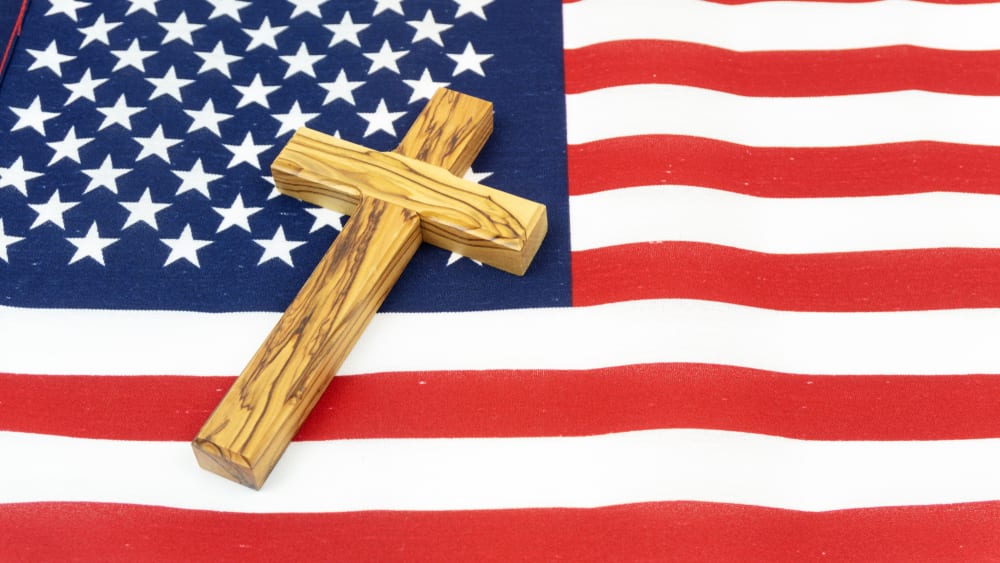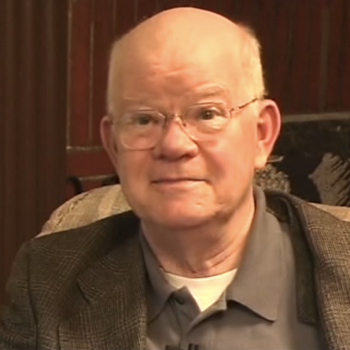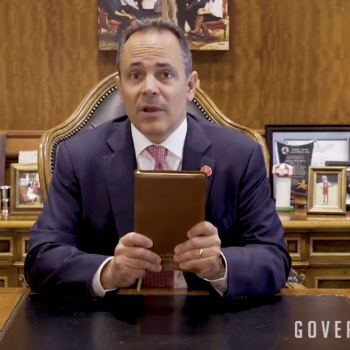30 years ago, there was a case in front of the 11th Circuit Court of Appeals regarding a Native American high school football player, Doug Jager, who didn’t practice Christianity. He had sued his school district because of their pre-game invocation prayers. The school district tried to make the lawsuit moot by changing their policy so that school clubs could choose someone — a student, a staffer, a parent, etc. — to deliver an invocation on their behalf. (See? No explicit Christianity!)
But Judge Frank M. Johnson, Jr. saw through that charade. He knew that the end result would still be a barrage of Christian invocations. Writing for the majority in 1989, he said that the revised policy was a violation of the Establishment Clause.
What made that result memorable wasn’t just that he was right. It’s that the Supreme Court hadn’t weighed in on these kinds of prayers before. There was no precedent from which to start. So Johnson was, in a way, on his own in deciding how to rule on the matter.
In a new paper slated to appear in the Alabama Law Review, Professor Caroline Mala Corbin discusses that case — which she says was correctly decided — and how the Supreme Court has since moved in the other direction entirely. By allowing explicitly Christian invocations at government meetings (Greece v. Galloway) and saying Christian monuments on government property are legal if they’ve been around for a long time (American Legion v. American Humanist Association), the Court has effectively ushered in a new age of Christianity Nationalism, where a certain kind of conservative Christianity is the country’s default religion.
That reality makes it more likely that non-Christians (and even non-conservative Christians) are treated as second class citizens and deemed unpatriotic by many powerful people.

If nothing else, government-sponsored Christianity creates a caste system based on religion. For the government to align itself with one and only one religion is to send a message that (a) there is one true religion and (b) adherence to that religion is the approved way be a true citizen of the polity. All those who do not bow their heads with the government do not belong in the same way (or at all). In short, the government-approved Christian symbols and Christian prayers create an in-group (Christians) and an out-group (non-Christians). “Those who aren’t Christian — or aren’t the right kind of Christian — can never be full citizens of the country the Christian nationalists wants to create.”
As Corbin notes, none of this is necessary. Christians were never shut out of the public square and they don’t need the government’s help to express their views.
This encouragement of Christian nationalism is completely avoidable. There is no need for government-sponsored Christianity. Christian invocations are not necessary: any secular goal can be accomplished by solemn secular invocations. Nor is there any need for the government to erect tributes highlighting the birth (nativity) or death (Latin cross) of Jesus Christ. If the state wants to celebrate the secular aspects of Christmas, then it can celebrate with a secular Santa and reindeer. If the state wants to honor those who died defending the United States and its ideals of liberty and equality for all, then honor them with an actual American symbol, such as the American flag or the American eagle. Unlike symbols of single faith tradition, which do not speak to other religious observers, never mind those who live without religion, these symbols would represent American values shared by everyone.
It’s a fascinating, sobering read that shows you how far we’ve strayed from a nation where religious neutrality by the government used to be respected. Unless Republicans are outvoted, and their lifetime-appointed federal justices are outnumbered, none of that will change anytime soon.
(Image via Shutterstock)




It’s Moving Day for the Friendly ..."
It’s Moving Day for the Friendly ..."
It’s Moving Day for the Friendly ..."
It’s Moving Day for the Friendly ..."